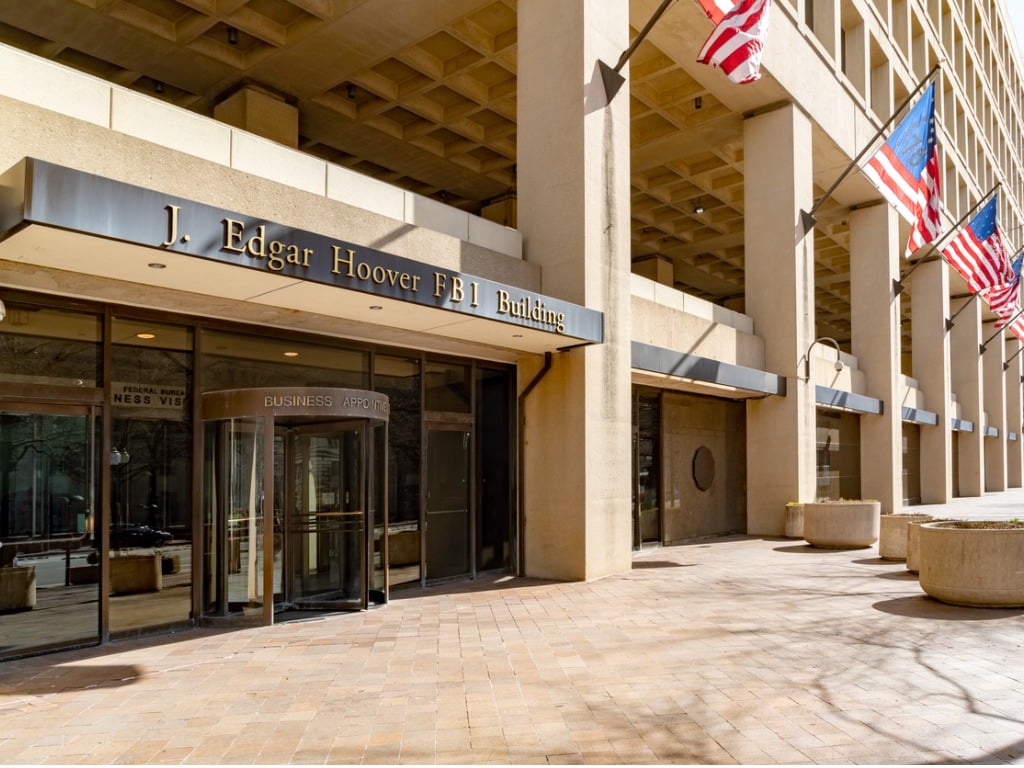In the wake of a Department of Justice (DOJ) Office of the Inspector General (DOJ OIG) memo which raised concerns about the DOJ and FBI’s practice of revoking security clearances of whistleblowers, the FBI has reinstated the security clearance of Marcus Allen, an agent who claimed whistleblower status and testified before Congress.
In a May 31 letter to Allen, FBI Executive Assistant Director Timothy Dunham wrote, “My decision to reinstate your security clearance is based upon a determination that the original security concerns have been investigated and have been sufficiently mitigated.”
In the DOJ OIG memo, DOJ Inspector General Michael Horowitz raised concerns that the DOJ and FBI do not have the proper policies to protect employees who allege their security clearance has been suspended, revoked, or denied in retaliation for making a protected disclosure.
Horowitz claims that the DOJ unlawfully suspended whistleblowers without pay and placed their security clearances under review with limited ability to appeal for years, which “creates the risk that the security process could be misused, as part of an inappropriate effort to encourage an employee to resign.”
On May 29, Senator Chuck Grassley(R-IA), co-founder and co-chair of the U.S. Senate Whistleblower Caucus, wrote a letter to Deputy Attorney General Lisa Monaco expressing concerns about this practice of unlawful retaliation against whistleblowers and firmly advocating for the DOJ to reform its security clearance review process.
According to Grassley’s letter, the DOJ failed to comply with 50 U.S.C. § 3341, which prohibits agencies from threatening an employee’s security clearance away from retaliation for engaging in legally protected whistleblower activity, and SEAD 9, which requires the federal agency’s Inspector General to conduct fact-finding for employees who appeal the decision that their security clearance was suspended, revoked, or denied due to illegal retaliation. Grassley claims that these failures lead employees who intend to report wrongdoing to not do so in fear of having their security clearances suspended with the narrow chance of appeal.
Grassley wrote in the letter, “The Justice Department’s failure to follow the law only serves to create a chilling effect on employees reporting wrongdoing out of fear they will have their security clearances suspended and indefinitely put on leave without pay, with little recourse to appeal the decision.”
In his letter, Senator Grassley asks that Monaco respond to the following five questions:
- “Please provide, in detail, the efforts the Justice Department and its components have taken or plan to take to fully implement DOJ OIG’s recommendations. Provide all updated policies, guidance, and related documents implementing these recommendations.
- Please explain, in detail, why the Justice Department and its components failed to update its internal policies to comply with the requirements of 50 U.S.C. § 3341 and SEAD 9.
- Since the conclusion of the DOJ OIG Memorandum review, has the Justice Department and its components notified employees of their rights to appeal security clearance suspensions pending review for over a year to the DOJ OIG pursuant to 50 U.S.C. § 3341 and SEAD 9? If not, why not? If yes, provide the notification transmitted to employees.
- Since the conclusion of the DOJ OIG Memorandum review, has the Justice Department allowed employees with suspended security clearances pending review for over a year to appeal to the DOJ OIG as required by 50 U.S.C. § 3341 and SEAD 9? If not, why not?
- Has the Justice Department and its components developed and implemented alternatives to indefinite suspensions without pay for employees with a suspended security clearance as required by 50 U.S.C. § 3341 and SEAD 9? If not, why not? If yes, provide all policies, guidance, and related documents of these alternatives.”
